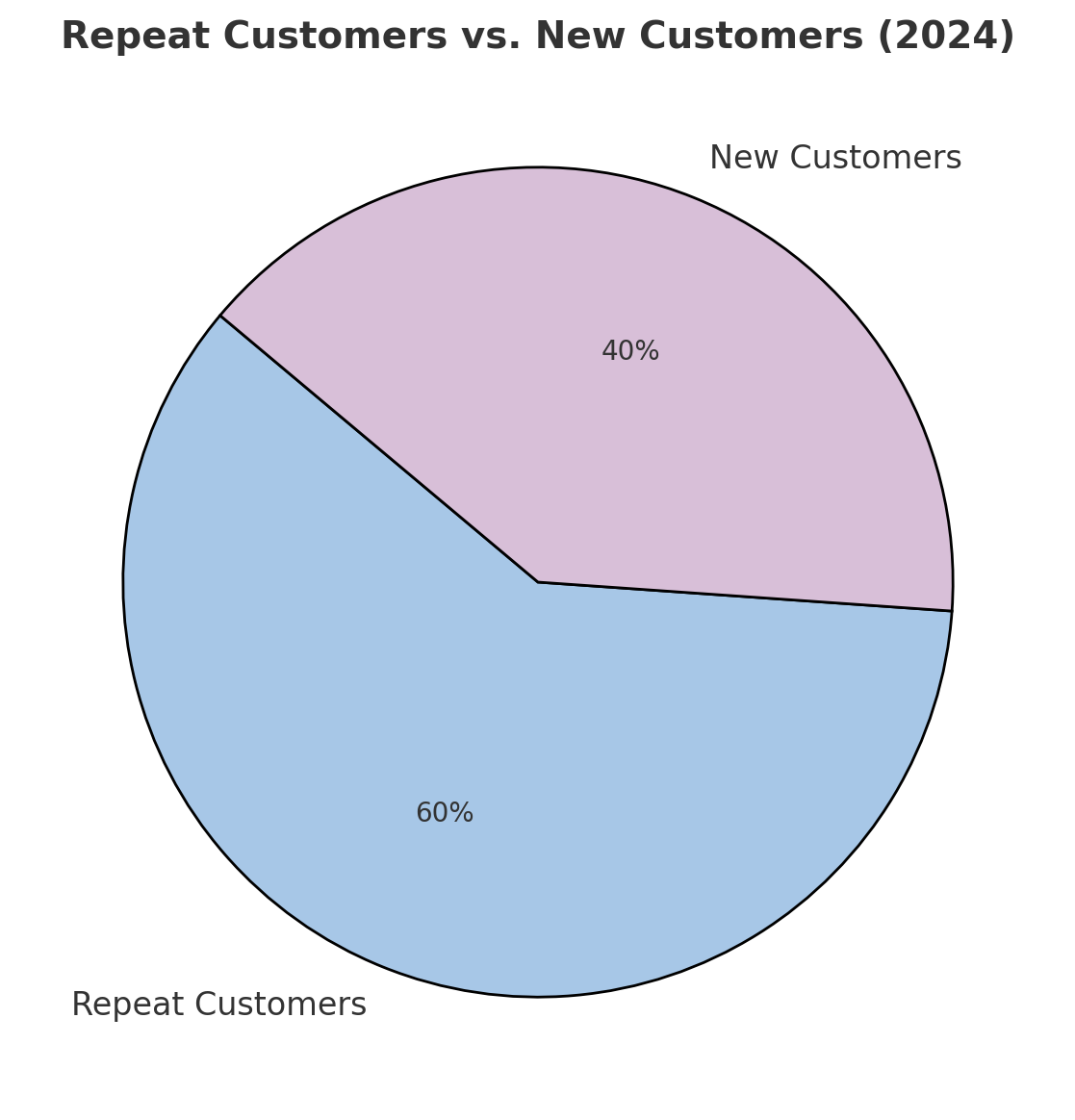A Culinary Vision Takes Root
"Food isn’t just about taste it’s about experience, memory, and connection. I wanted to bring that philosophy to Pakistan in a way that felt both familiar and new."
Entrepreneurial journeys often begin with a passion, but it takes vision and resilience to transform that passion into a thriving business. For Rabia, cooking was more than just a skill it was a way to honor tradition, embrace creativity, and redefine Pakistan’s evolving culinary identity.
Raised in a household that celebrated food as a cultural and emotional experience, Rabia was deeply influenced by the rich flavors of home-cooked meals and the global techniques she encountered during her travels. But turning that passion into a business required more than just creativity it needed strategy, persistence, and an ability to challenge conventional norms.
Her journey started with a small catering business and a handcrafted condiment line, both of which gained recognition for their thoughtful flavor profiles and commitment to authenticity. As demand grew, she recognized a gap in the market: Pakistan’s dining culture was heavily traditional, with few spaces for culinary experimentation and innovation. This realization led to the bold decision to launch On the Table a restaurant designed to bridge the gap between heritage and modernity, offering an experience-driven approach to Pakistani cuisine.
"People didn’t just want good food they wanted a story, a connection, and an experience that went beyond the plate. That’s what On the Table is all about."
Despite the risks involved in pioneering a new style of dining, Rabia was determined to push forward, fueled by a belief in her craft and an unwavering commitment to quality. What started as a homegrown experiment soon evolved into a culinary movement, shaping a new era of modern Pakistani dining.
From Challenges to Breakthroughs
"Every challenge in the culinary world is an opportunity to innovate and redefine expectations."
Every entrepreneur faces obstacles, but success is often defined by how they navigate and overcome them. For Rabia, building On the Table meant venturing into uncharted territory introducing a progressive culinary experience in a market deeply rooted in tradition. With limited financial resources, a hesitant consumer base, and unpredictable economic shifts, she had to continuously adapt, innovate, and push forward.
1. Financial Constraints & Self-Funding
Unlike many restaurant startups that rely on external investors, Rabia took a self-funded approach, using savings from her catering business and condiment line to finance the launch of On the Table. This decision allowed her to maintain creative independence, but it also meant that every rupee had to be strategically allocated.
"I wasn’t just investing in a restaurant I was investing in a vision. Every decision, from sourcing ingredients to menu development, had to be financially sustainable."
Without large-scale funding, she prioritized slow and organic growth, ensuring that the business could sustain itself without external pressure.
2. Market Resistance to Culinary Innovation
Pakistan’s restaurant industry is steeped in tradition, with consumers gravitating towards well-established flavors and formats. Introducing a modernized, experience-driven dining concept was met with skepticism. Many diners questioned the need for culinary reinvention, making customer education a crucial part of her strategy.
"People asked why I wasn’t just serving butter chicken or biryani. But I believed that Pakistani cuisine had the potential to evolve just like any global food culture."
Through interactive tastings, social media storytelling, and word-of-mouth recommendations, Rabia gradually built an audience eager to explore new interpretations of familiar flavors.
3. Supply Chain & Ingredient Sourcing Challenges
Maintaining ingredient authenticity and quality while scaling was a challenge. Rabia insisted on sourcing the finest raw materials, rejecting multiple suppliers who failed to meet her standards. Delays, inconsistent quality, and logistical hurdles meant she had to personally oversee every step of the procurement process.
"The right ingredient can make or break a dish. I wasn’t willing to compromise, even if it meant rejecting entire shipments."
To ensure quality control, she developed direct partnerships with trusted local farmers and artisanal producers, strengthening the supply chain over time.
4. Economic Fluctuations & Sustainability in a Volatile Market
With Pakistan’s fluctuating economy, rising inflation, and shifting consumer spending habits, the restaurant business is inherently unpredictable. On the Table had to adapt to external pressures while remaining financially sustainable.
Rabia addressed this by:
- Adjusting menu pricing and portion sizes to maintain affordability without compromising quality.
- Introducing seasonal menus to reduce dependency on expensive, hard-to-source ingredients.
- Focusing on experiential dining offerings, making each visit memorable enough to encourage repeat customers.
Through resilience, strategic pivots, and an unwavering belief in her vision, Rabia transformed these barriers into stepping stones, proving that innovation in the culinary world is not just possible it’s essential.
Scaling On the Table: Three Key Growth Drivers
"Growth isn’t about doing everything at once it’s about making the right moves at the right time."
Scaling a restaurant is about more than just expansion it requires thoughtful decisions, brand consistency, and a strong customer connection. For On the Table, Rabia focused on three core pillars that helped establish long-term sustainability and a deeply engaged customer base.
1. Crafting an Experience-Driven Brand
Rabia understood that in a crowded food industry, offering great food wasn’t enough she had to create an experience that people would remember. Instead of relying solely on traditional service, she introduced interactive tasting menus, chef’s tables, and seasonal dining concepts that kept customers engaged and excited to return.
"People don’t just come for the food they come for the story, the interaction, and the experience of something new. That’s how you build loyalty."
By focusing on experiential dining, she transformed On the Table into more than just a restaurant it became a space for culinary exploration, drawing in customers who sought something beyond the ordinary.
Key Elements of the Customer Experience Strategy
Personalized Packaging: 70% of customers appreciate customized meal packaging.
Loyalty & Rewards: 60% of repeat customers cite the rewards program as a reason for returning.
Customer Interaction: 80% of customers engage with “On the Table” through social media polls, contests, or Q&A sessions.
Exclusive Menus & Limited-Time Offers: 40% of total monthly sales come from special, limited-time menu items.

2. Expanding Through Strategic Partnerships
Unlike many restaurant owners who rush to open multiple locations, Rabia took a measured approach to scaling. She focused on building credibility before expansion, leveraging collaborations with premium grocery stores, specialty markets, and pop-up events to extend her brand’s reach.
"The goal was never to grow fast it was to grow smart. Every new move had to feel right for the brand."
By introducing her handcrafted condiments in select premium stores, Rabia expanded her presence without the heavy overhead costs of additional restaurant locations. This hybrid approach allowed her to test new markets while reinforcing brand trust and awareness.
3. Leveraging Digital Presence & Storytelling
Rabia knew that social media wasn’t just a marketing tool it was a way to connect directly with her audience. She built a strong digital identity, sharing behind-the-scenes content, chef insights, and interactive customer engagement posts to make her audience feel like part of the journey.
"When people see the passion, the process, and the story behind the food, they feel more connected to it. That’s what makes them come back."
Through consistent digital storytelling, influencer collaborations, and community engagement, she built a loyal customer base that extended beyond her physical location, reinforcing On the Table’s brand as both a dining experience and a movement for culinary innovation.
By focusing on curated experiences, strategic partnerships, and digital storytelling, Rabia didn’t just scale her business she transformed the way people engage with Pakistani cuisine.
Repeat Customers vs. New Customers
60% Repeat Customers
40% New Customers

Transforming Culinary Passion into a Scalable Success
"Success in the food industry isn’t just about what’s on the plate it’s about the experiences, connections, and values behind it."
As On the Table grew, Rabia’s strategic decisions and perseverance translated into measurable success, reinforcing key lessons that shaped her journey. Her ability to blend culinary innovation, business acumen, and authentic storytelling not only helped her scale but also positioned her as a pioneer in Pakistan’s evolving dining culture.
1. Innovation and Tradition Can Coexist
Rabia proved that modernizing Pakistani cuisine doesn’t mean abandoning its roots. By respecting traditional techniques while infusing global influences, she created a unique culinary identity that resonated with a broad audience.
"It’s about balance you innovate while staying true to the essence of the food. That’s how you build something meaningful."
2. Customer Engagement Drives Brand Loyalty
Rabia understood that building a loyal customer base required more than just good food. She cultivated strong relationships by offering immersive dining experiences and fostering an engaged digital community.
"People don’t just want a meal they want to be part of the story. That’s what keeps them coming back."
3. Strategic Growth Over Rapid Expansion
Instead of chasing aggressive scaling, Rabia prioritized thoughtful growth. She leveraged partnerships, pop-up collaborations, and selective retail expansion to build credibility before committing to larger moves.
"Growing fast isn’t the goal growing right is. Every step needs to align with the bigger vision."
4. Digital Storytelling Is Essential in Modern Business
Rabia recognized the power of social media in shaping consumer perception. Through consistent storytelling, she built an emotional connection with her audience, making her brand more than just a restaurant it became a movement.
Social Media Channels Effectiveness
Instagram: 45% of total customer engagement, 30% of direct orders
TikTok: 35% of engagement, 50% of viral traffic
Facebook: 20% of engagement, 15% of direct orders

"A strong digital presence isn’t optional anymore. It’s how you connect, engage, and build lasting trust."
By integrating tradition with innovation, fostering deep customer relationships, and scaling with intention, Rabia transformed On the Table into a culinary brand that inspires, connects, and redefines modern Pakistani dining.
Redefining Culinary Identity: The Future of Pakistani Dining
Rabia’s journey mirrors the evolution of Pakistan’s culinary landscape a fusion of tradition, innovation, and resilience. Much like a chef crafting a signature dish, she combined heritage-rich techniques with modern influences, proving that food is more than sustenance it is an expression of identity, culture, and transformation.
At its core, On the Table represents a larger shift in Pakistan’s food industry, where entrepreneurs are moving beyond conventional flavors to create immersive, experience-driven dining. Just as global cuisines evolve through innovation, Rabia’s approach underscores the power of adapting without losing authenticity.
Her story demonstrates that true success in the restaurant industry is not just about serving great food it’s about crafting a movement. By embracing thoughtful expansion, customer engagement, and digital storytelling, Rabia has laid the foundation for a new era in Pakistani gastronomy.
The emergence of modern culinary entrepreneurs like Rabia signals a new Pakistan one where food is no longer confined to tradition but is instead an ever-evolving narrative of creativity, connection, and global influence.

